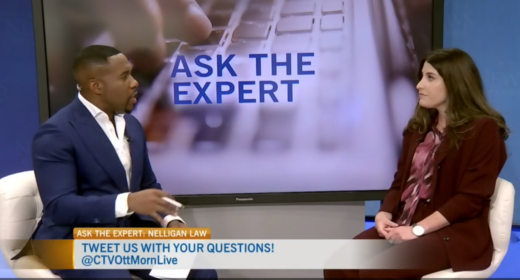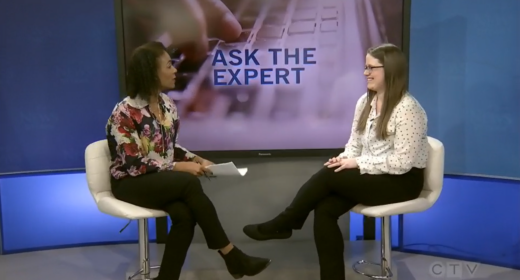Thousands of vulnerable elderly Canadians are abused or neglected in their own homes, the homes of their relatives or in assisted care facilities. Seniors Canada reports that 1 in 5 Canadians believes they know of a senior who might be experiencing some form of abuse. Sadly, many of these cases of abuse or neglect go either unnoticed or unreported and result in the elderly person being at risk for injury or even premature death.
What is Elder Abuse?
Elder abuse is any action by someone in a relationship of trust that results in harm or distress to the elderly person. It may take different forms and can be a single incident or a repeated pattern.
Financial exploitation is one form of elder abuse and I would venture to say that it is the most common form of mistreatment of the elderly. Examples of financial exploitation include misuse of an elder person’s cheques, credit cards or bank accounts, stealing cash, forging the elder person’s signature, and phony charities or investment fraud.
Signs of financial exploitation include the suspicious withdrawing of significant amounts of cash from the elderly person’s bank account, items missing from the person’s household, sudden changes in the elderly person’s financial situation, and suspicious changes to a Will, Power of Attorney, title to property, or life insurance policies.
Many of the financial exploitation cases that I encounter in my practice share a very similar set of facts. In nearly all of such cases, the financial exploitation of the elderly person is carried out by a person who is closest to the elderly person, such as a son or daughter. The son or daughter, who often has had little financial success in his or her own life, moves in with the physically or mentally fragile parent and begins to take control of the parent’s finances under the guise of helping to manage the parent’s financial affairs.
Over time, the adult child gains more control over the parent’s finances. The adult child may convince the parent to grant him or her Power of Attorney over the parent’s assets or convince the parent to add the adult child’s name to certain bank accounts. The adult child then begins treating the parent’s bank accounts as his or her own personal piggy bank by withdrawing large sums of money to fund the adult child’s own lifestyle. If the parent suffers from cognitive impairment, they may not know that the adult child is stealing the money.
Often times the parent feels helpless and is too intimidated to speak out. In these types of situations, the parent is usually completely dependent on the adult child for care. The ongoing financial exploitation is often not discovered until a concerned relative eventually catches on or until after the death of the elder person. By the time the financial exploitation is discovered or ends, the elderly person’s assets are usually depleted to the point that there is virtually nothing left.
This scenario is not to suggest that every adult child who has Power of Attorney over a parent’s assets or who holds accounts jointly with a parent is a con artist who is stealing money from the parent. A Power of Attorney or a bank account which is held jointly with a trusted relative can be of benefit to the elderly person if used honestly and in a manner that places the best interests of the elderly person as paramount.
Other forms of elder abuse include physical violence such as hitting, shoving, inappropriate use of drugs, restraints, confinement or sexual abuse. Emotional abuse is also a form of mistreatment of elderly persons, which includes ongoing ignoring, isolation, intimidation, or control through threats or yelling. Mistreatment of elderly people is also carried out by unscrupulous doctors, nurses, and other professional care givers by engaging in activities such as charging for health care but failing to provide it, double billing for medical services, over or under medicating, and recommending fraudulent treatments for medical conditions.
Recognizing the Signs of Elder Abuse
In most cases of elder abuse, the elderly person is already in a vulnerable position due to physical and/or mental deterioration. Obvious signs of abuse include unexplained bruises, broken bones, or signs of being restrained. Other warning signs include obvious ongoing tension between the elderly person and the caregiver or the witnessing of belittling or controlling behavior exhibited by the caregiver toward the elderly person. Signs of neglect include unusual weight loss, untreated physical conditions such as skin rashes and bed sores, unsanitary or unsafe living conditions, being left unbathed and being dressed in unclean clothes. If an elderly person is being abused or neglected, the person’s personality or behavior may change in that he or she may become quiet, withdrawn, or appear anxious or depressed.
Factors which put an elderly person at greater risk for abuse, neglect or financial exploitation include:
- The degree of an elderly person’s illness or dementia.
- A caregiver who feels pushed beyond his or her capabilities.
- Social isolation.
- A history of domestic violence in the home or the elder person’s own tendency toward abuse or aggression.
Ways to Prevent and Protect Against Elder Abuse
There are steps that can be taken to decrease the risk of abuse or to stop abuse if it is already taking place. They include:
- Getting your financial and legal affairs in order (including a Will and Power of Attorney) while you are still of sound mind.
- Keeping in touch with friends and family members as much as possible and avoid becoming isolated.
- Friends and relatives of an elderly person should call or visit the elderly person regularly and, where appropriate, offer to stay with the elderly person to give the caregiver a break.
- If your friend or loved one lives in an assisted care facility and you are concerned about his or her well-being, visit that facility at different times and days so that staff do not anticipate your presence.
- If you are concerned that an elderly person is being subject to abuse, neglect or financial exploitation, then you should speak up and take action. There are federal and provincial initiatives in place and resources available to prevent and combat elder abuse. They include the New Horizons Seniors Program and the Ontario Network for the Prevention of Elder Abuse (ONPEA). A trusted physician or lawyer may also be able to help.
- Contact the police to report abuse. An abuser may be charged under one or several Criminal Code offences, including assault, forceable confinement, theft, theft by holding Power of Attorney, intimidation, uttering threats, or breach of duty to provide necessities.
- Consult a lawyer to challenge the validity of a suspicious transfer of property or Power of Attorney granted by an elderly person who lacks mental capacity or is subject to intimidation and undue influence.
- In some instances it may be appropriate for legal proceedings to be commenced in order to remove an individual as Power of Attorney so that an alternate individual or the Public Guardian and Trustee can take over the management of the elderly person’s personal and financial affairs.
It is important to recognize the signs of abuse and to be aware of what you can do to help protect the safety, security and dignity of vulnerable citizens in our society. Being present in the lives of our elderly friends and relatives and paying careful attention to their level of care and behavior will help to keep them out of bad situations and will prevent them from becoming victims.
Author: June Wright, © Nelligan O’Brien Payne LLP 2010
[This article was originally published in the November 2010 issue of Fifty-Five Plus Magazine.]


